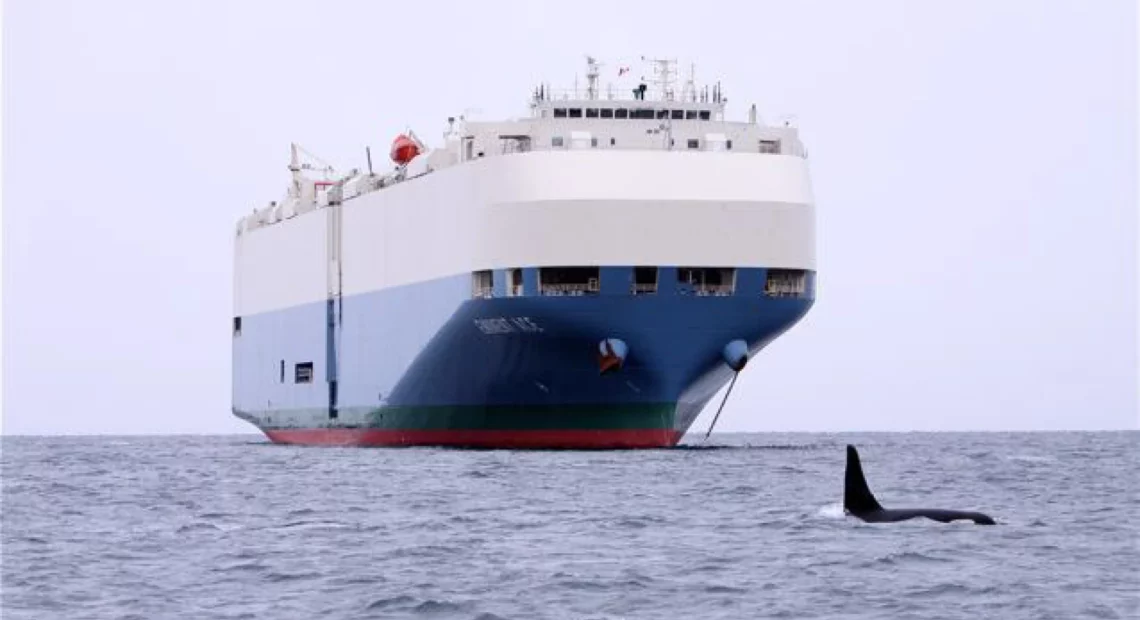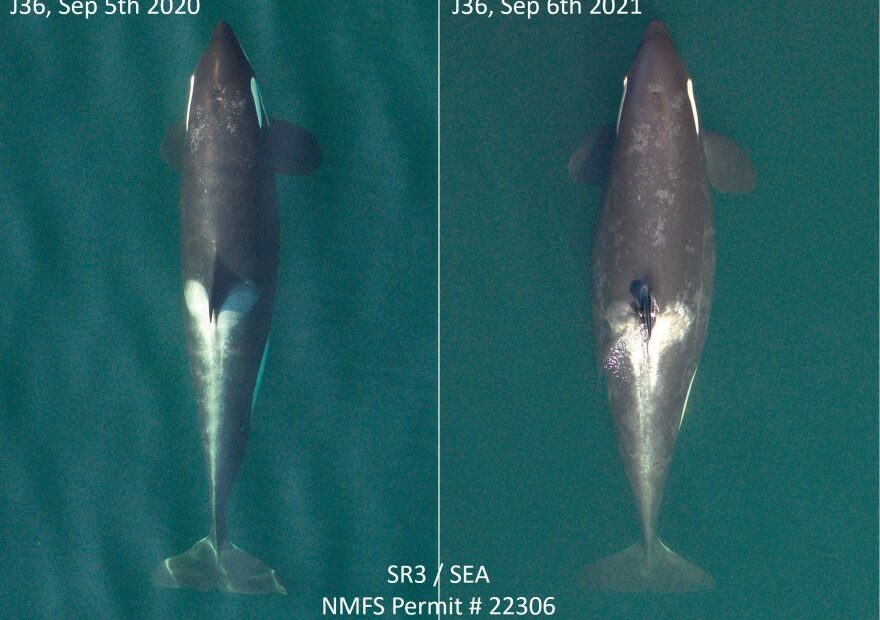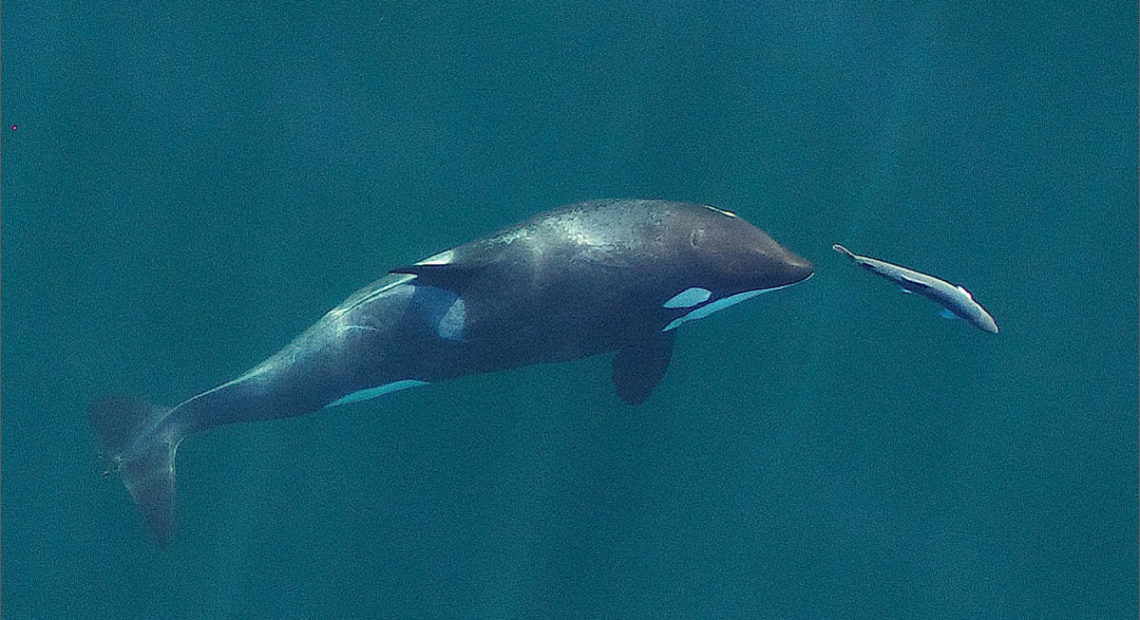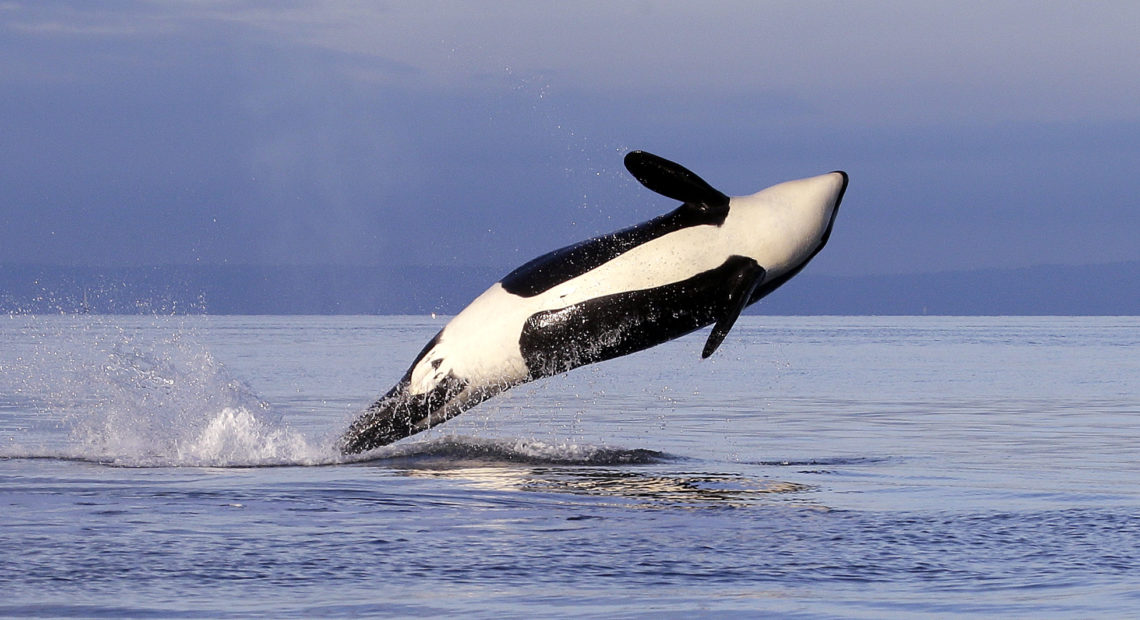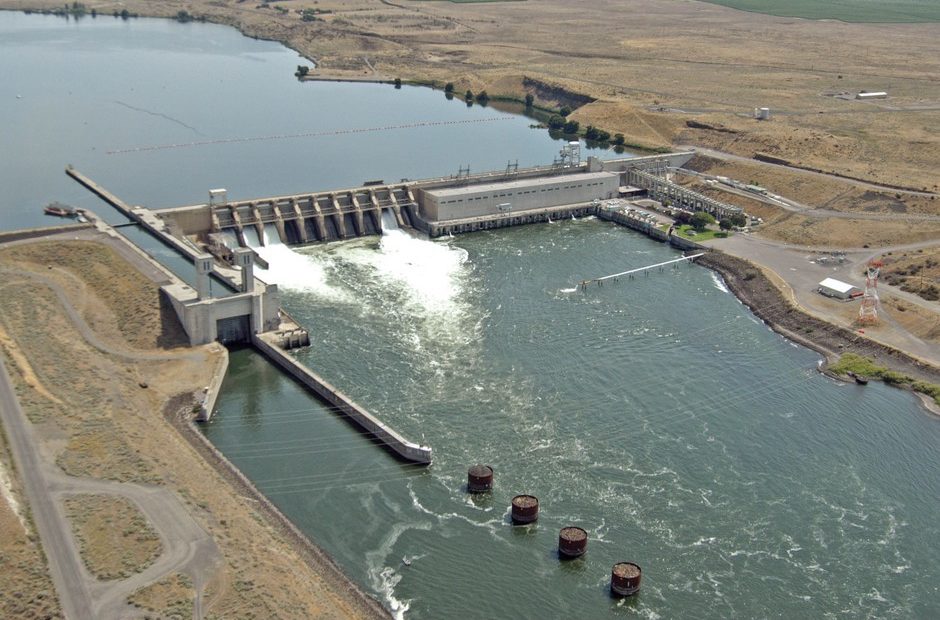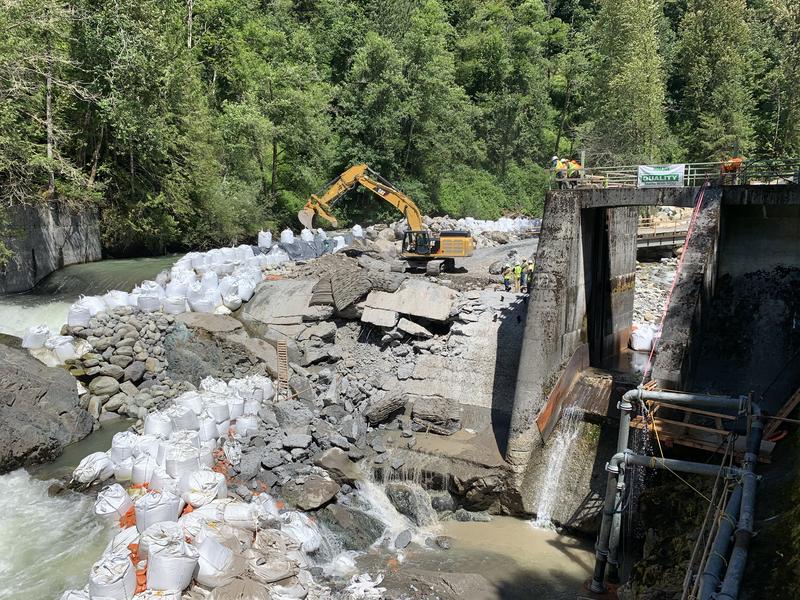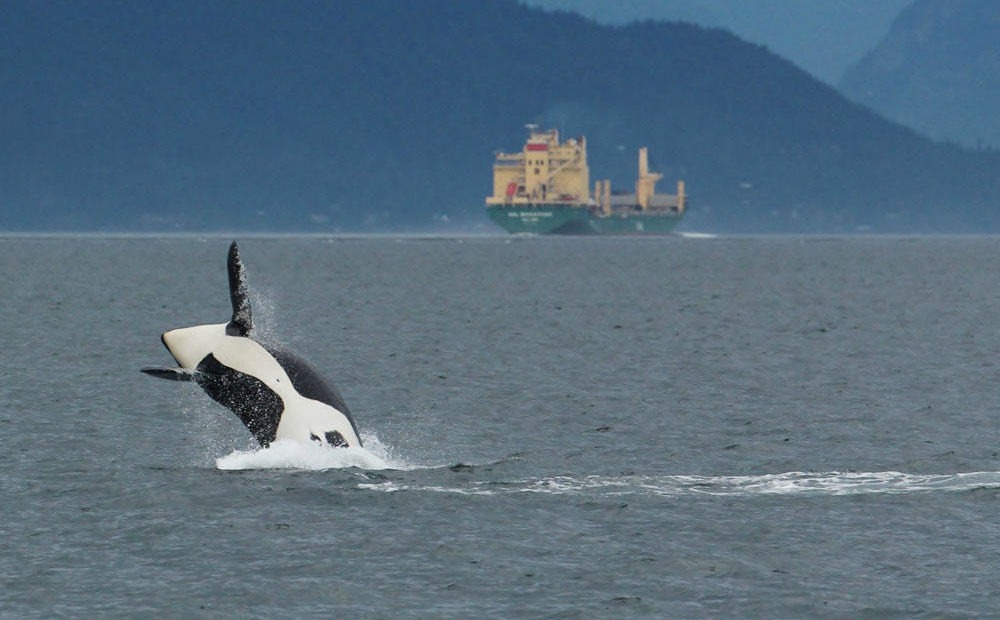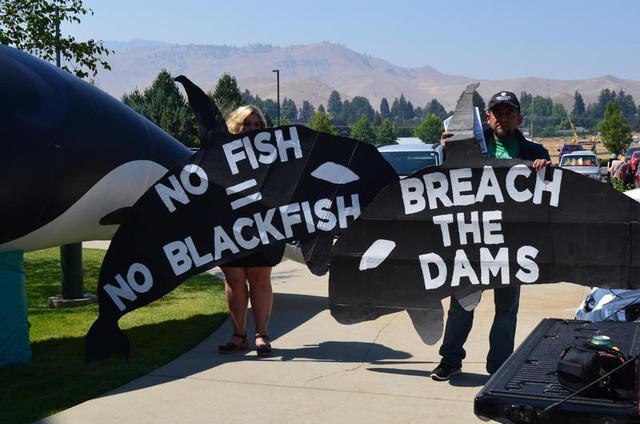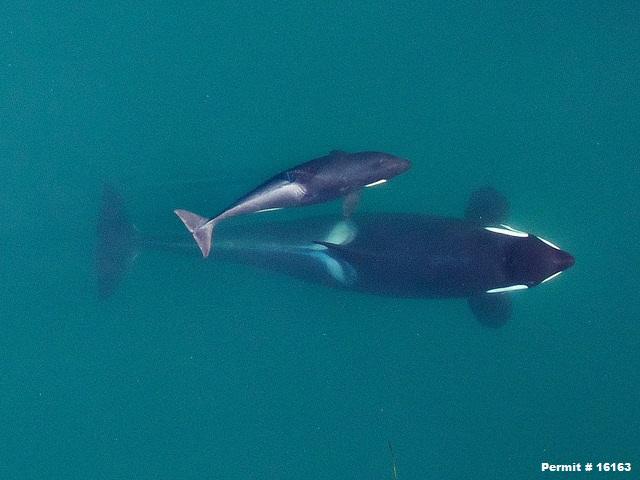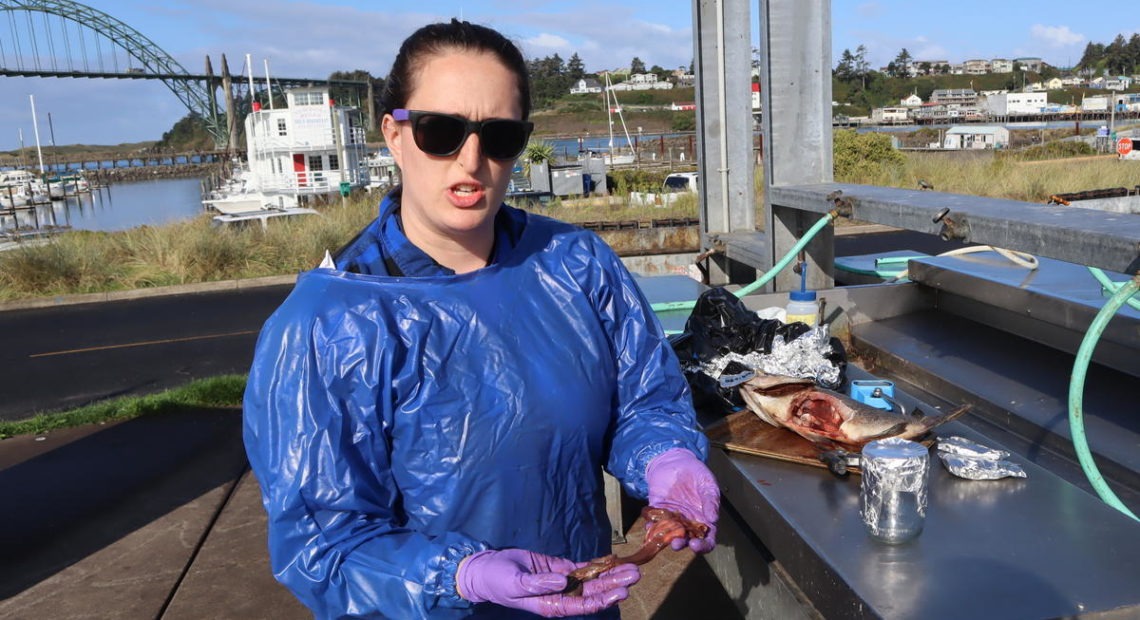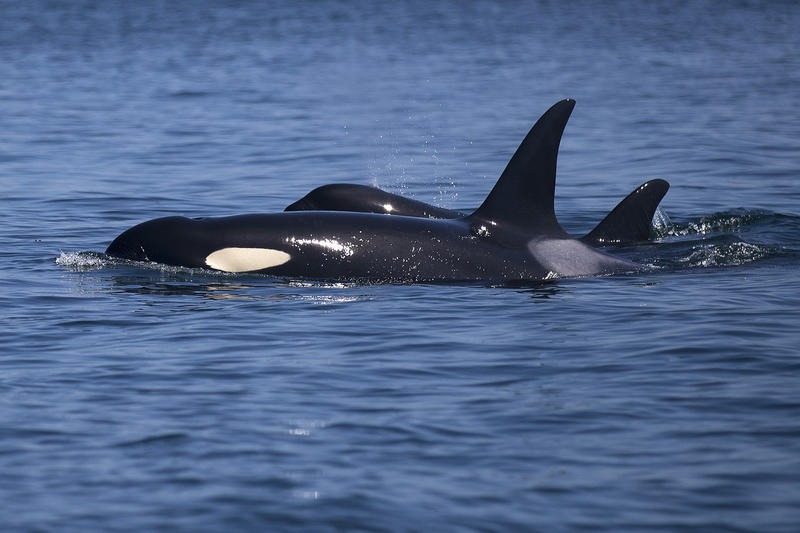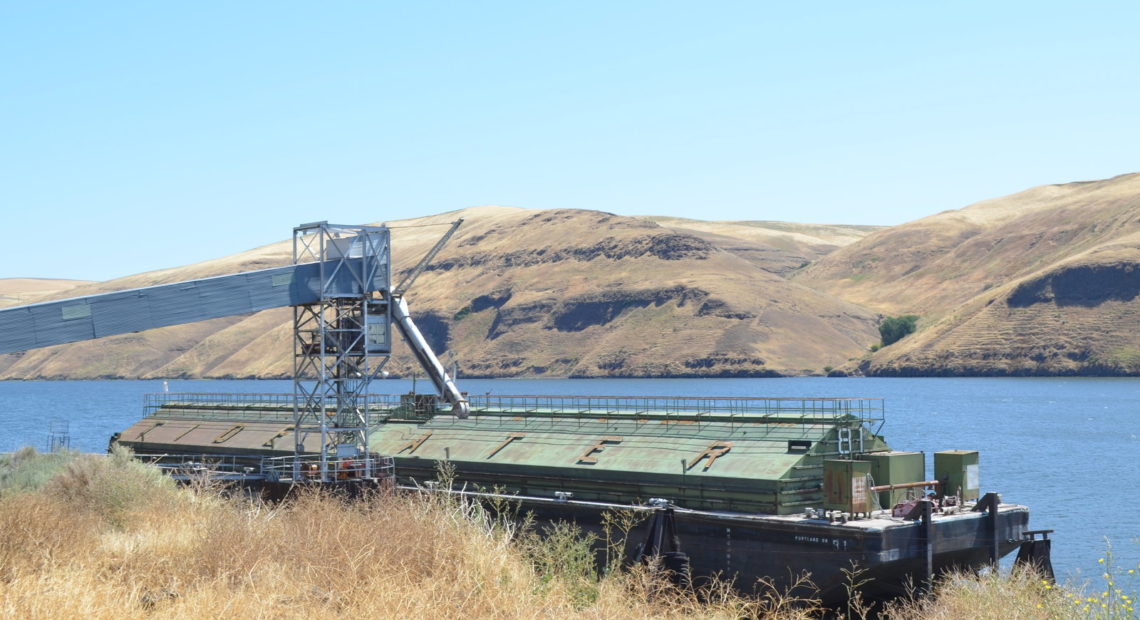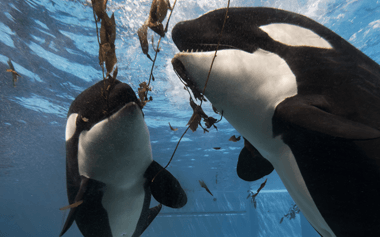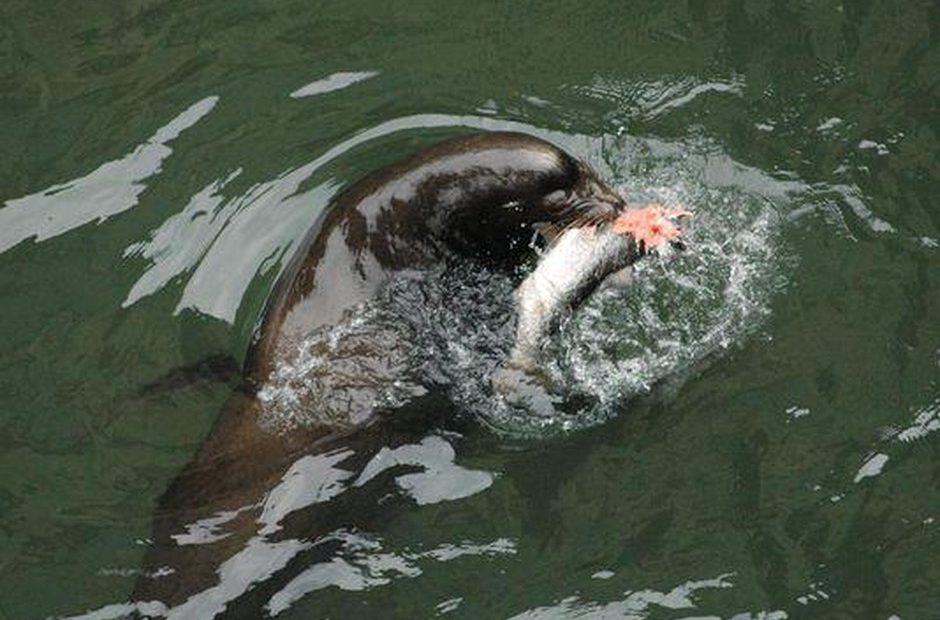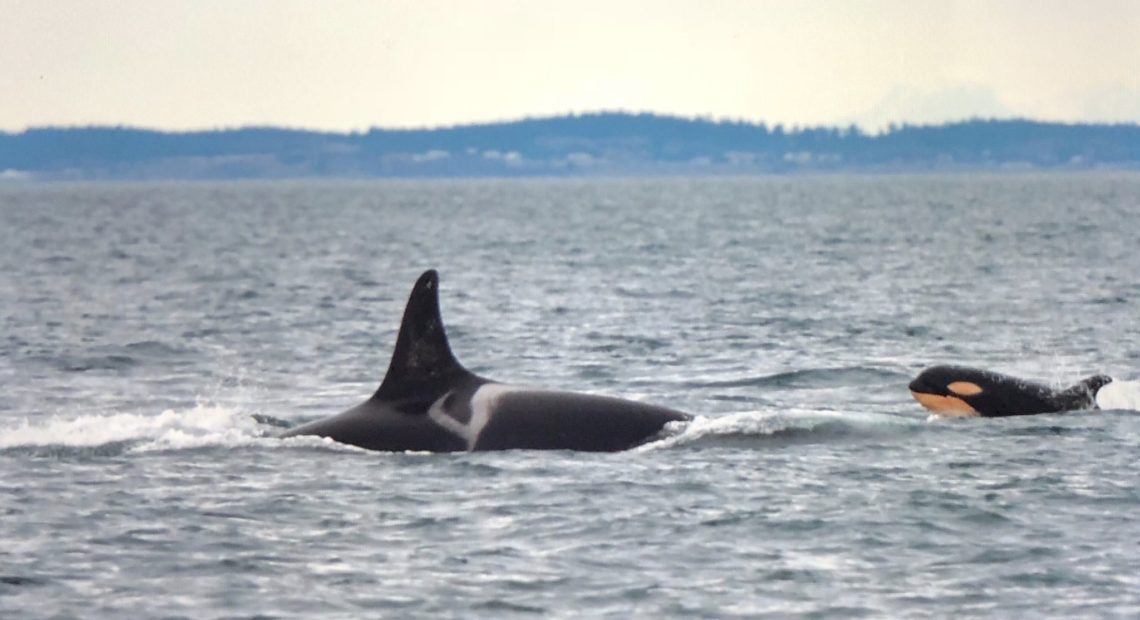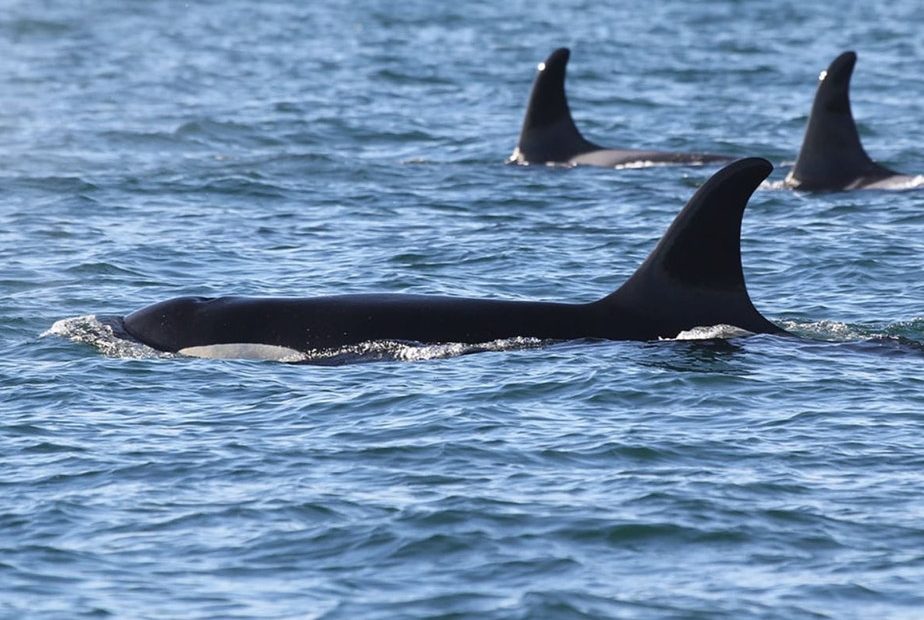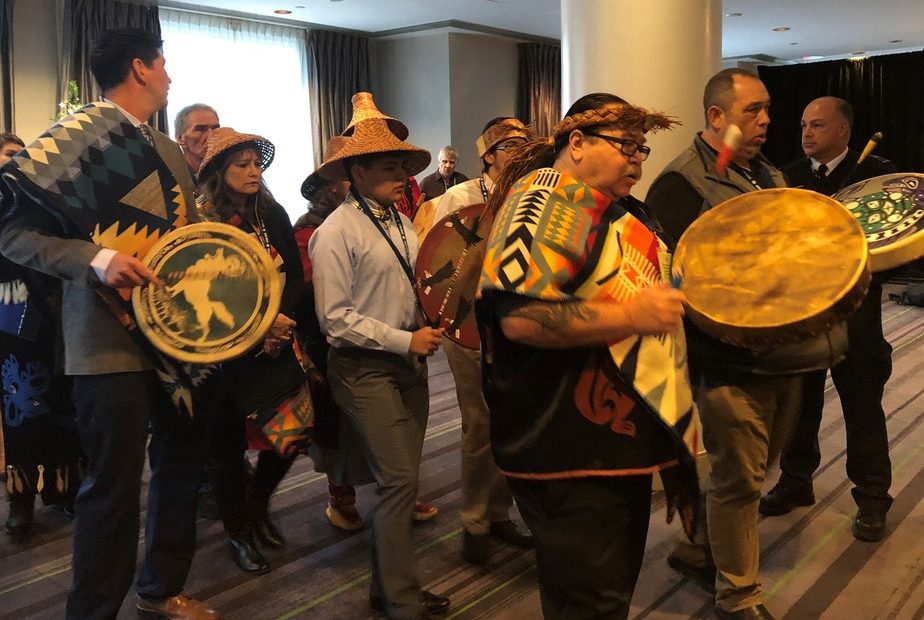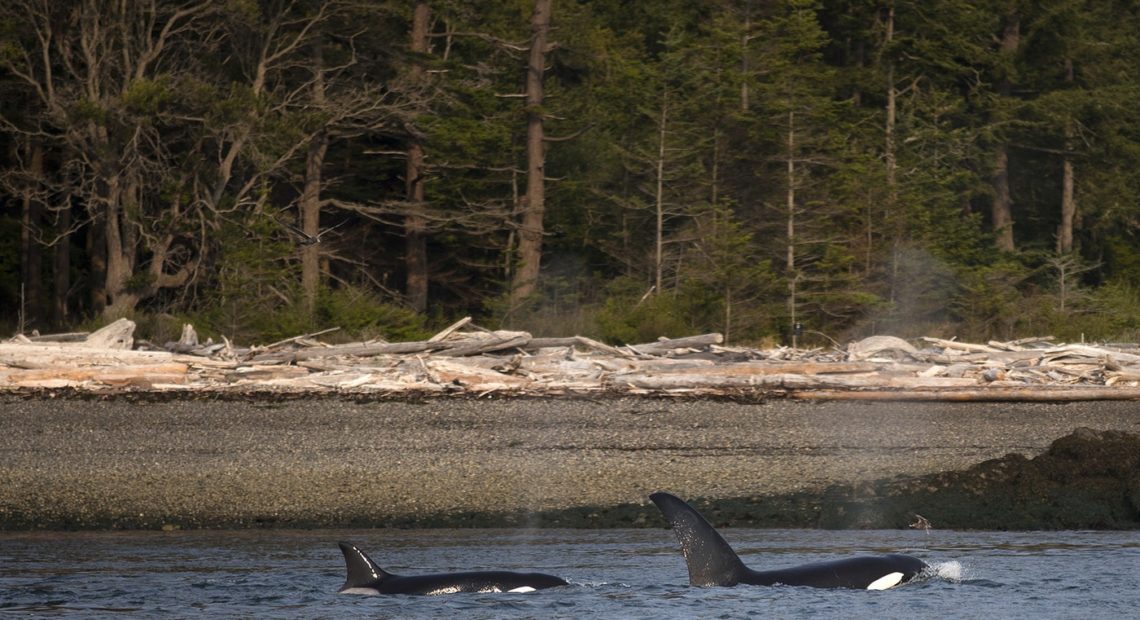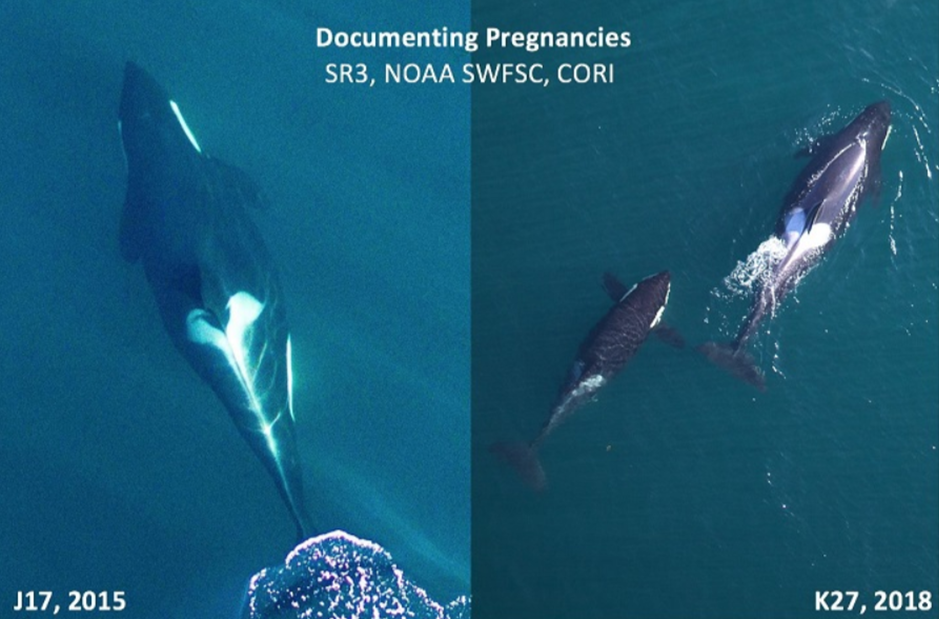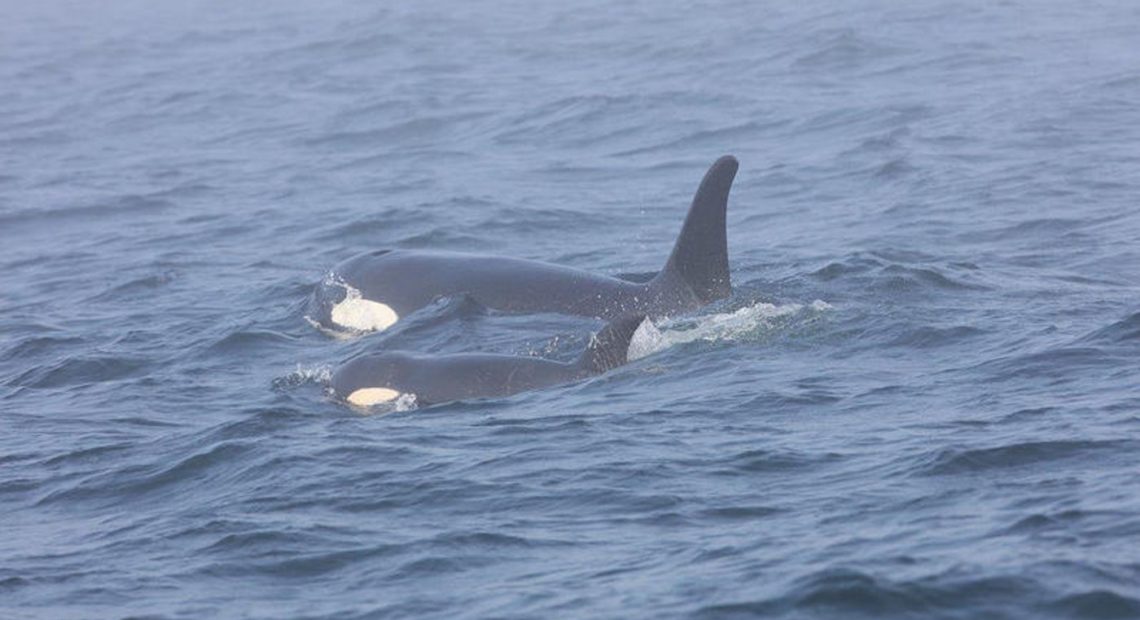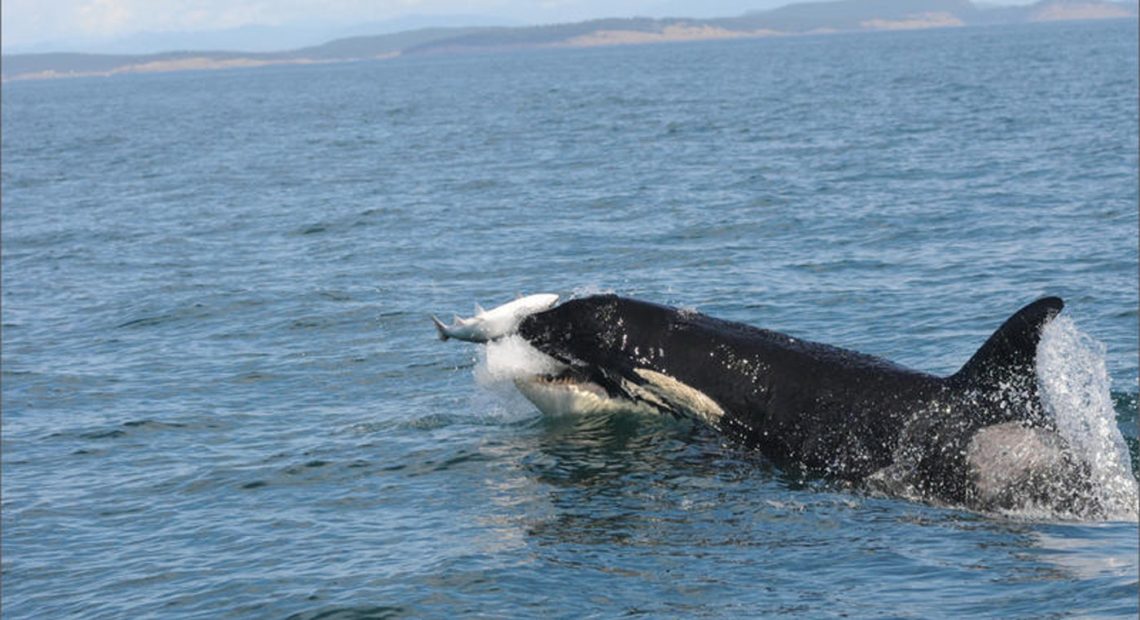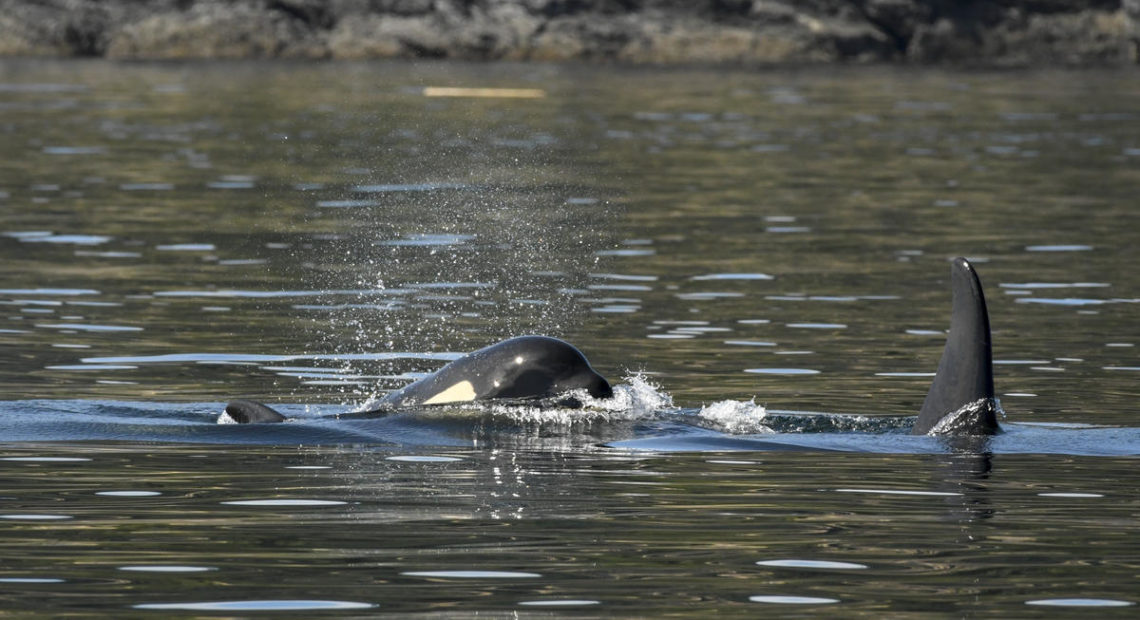Fortunately, it doesn't happen very often in the Pacific Northwest that ships collide with whales. But when it does, it's upsetting, tragic and the whale probably dies. Three separate teams have developed smartphone-based systems that can alert commercial mariners to watch out, slow down or change course when whales have been sighted nearby. A recent ride-along on a big Read More
Research photos taken with a drone show multiple killer whales are close to giving birth in one of the Pacific Northwest's critically endangered pods. The late-stage pregnancies stirred excitement among whale watchers -- and also renewed worries about the availability of adequate food supply for the mothers and babies.Read More
By analyzing the DNA of orca feces as well as salmon scales and other remains after the whales have devoured the fish, the researchers demonstrated that the while the whales sometimes eat other species, including halibut, lingcod and steelhead, they depend most on Chinook. And they consumed the big salmon from a wide range of sources — from those that spawn in California's Read More
According to the rules approved by the commission last week, from July through September, commercial whale watching companies can view endangered Southern Resident orcas during two, two-hour periods daily, The Skagit Valley Herald reported.Read More
Debates have dragged on for decades about whether to remove or alter the four dams. The Army Corps, Bureau of Reclamation and Bonneville Power Administration received almost 59,000 comments on the draft EIS this spring. The agencies are expected to finalize this plan by Sept. 30.Read More
A dam removal that has been 20 years in the making reached an important milestone this week. Explosives ripped through the concrete on the Middle Fork Nooksack, east of Bellingham. Read More
American and Canadian marine scientists -- and one talented dog -- are seizing an unexpected opportunity presented by the coronavirus pandemic. They are trying to establish whether Pacifc Northwest whales benefit from the current drop in boat traffic and underwater noise.Read More
The U.S. Army Corps of Engineers, Bureau of Reclamation and Bonneville Power Administration laid out a range of six alternatives in a draft environmental impact statement. The most controversial measure would have been to remove or alter the four Lower Snake River dams.Read More
More than 300 people showed up to hear speakers talk about why it’s important to either keep or alter the dams. The panel stems from a Washington state study that will guide the state’s position on dam removal.Read More
Upcoming public workshops will examine a draft report that gauges how people in Washington want to deal with the fate of the dams. At the workshops, officials will present the report’s findings, followed by a panel discussion. People can submit written and online comments on the draft report through Jan. 24.Read More
One of the habitat designations is specifically for Southern Resident Killer Whales, which spend about half the year in the Salish Sea north of Seattle. They feed on salmon. There are fewer than 80 of these orcas remaining. Read More
Plastics in the ocean food chain has become a hot topic for local scientists, for similar reasons city and state policy makers and activists are debating plastic bag bans and how to reduce plastic straw and bottled water usage. All are concerned that the world's oceans are awash in plastic trash and fibers.Read More
Whale watch tour companies have knocked a proposed orca protection initiative off the November ballot in San Juan County, Washington. The ballot measure would have asked voters to greatly increase the stand-off distance between boats and endangered killer whales.Read More
Washington's Snake River dams are important to wheat farmers.The state's wheat crop brings $700 million into the state's economy, more than any crop except apples. The vast majority of that wheat gets exported, most of it to Asia.Read More
An environmental nonprofit is gauging interest in the creation of an orca enclosure in Washington's San Juan Islands. The organization is hosting public outreach meetings over the coming week in six Western Washington locations.Read More
The question of whether boat-based watching tours are really harmless has become more urgent in Washington state, where Southern Resident killer whales have been declining since the 1990s.Read More
Politicians and wildlife managers are engaged in a fresh debate about whether to intervene in nature to save an imperiled species. The question is whether humans can get seals and sea lions to lay off Chinook salmon so there's more for killer whales to eat.Read More
In an effort to help imperiled salmon, Washington officials are proposing more water be spilled at dams during fish migration. The hope is that this would also increase the amount of food for orcas in Puget Sound.Read More
Warning that Washington state is at a "tipping point," Democratic Gov. Jay Inslee on Tuesday delivered a State of the State address that called on lawmakers to address carbon pollution, "transform" the mental health system and save Puget Sound orcas.Read More
Researchers say there's a new calf among the population of critically endangered killer whales that live in the waters between Washington and Canada.Read More
A southern resident orca appears to be emaciated, suffering from the disfiguring condition called “peanut head.” Whale researchers encountered the southern resident orcas' J-pod on New Year's Eve as they swam in Haro Strait.Read More
Tribal leaders and members from Washington state crossed the Salish Sea to oppose a pipeline that could bring more oil tankers to waters on both sides of U.S.-Canada border. The Canadian government wants to expand the Trans Mountain Pipeline and triple the flow of oil from Alberta to the Pacific coast.Read More
Last year, researchers reported finding 35 kinds of multi-drug-resistant bacteria in the exhaled breaths of killer whales off the San Juan Islands. Sewage treatment plants are usually effective at getting rid of bacteria — that’s their main purpose — but they fail to screen antibiotics and other pharmaceuticals from reaching otters or other aquatic organisms.Read More
As the Northwest’s killer whales have gained worldwide attention, more calls are being made to bolster the population of salmon they eat. One big way to do that, supporters say, is by removing Lower Snake River dams. But the federal government isn’t so sure that’s the answer.Read More
The lean profile of the whale known as K25 is yet another sign of trouble for the region’s endangered orcas. Since last November, three members of the long-endangered population have died, most recently an emaciated young female known as J50.Read More
Officials in Canada and the U.S. are hatching a plan to temporarily capture and treat an emaciated orca. The young whale known as J-50 hasn't been spotted in nearly a week and could already be dead.Read More
Veterinarians are again trying to help the emaciated young orca named J-50, after a dramatic turn of events over Labor Day weekend.Read More
A Canadian federal judge has halted construction of a pipeline that would have sent more oil tankers through Washington waters.Read More
Washington Gov. Jay Inslee's orca task force met in Wenatchee this week to come up with a long-term plan to help the recovery of the orca population that spends much of its time in or around the Puget Sound.Read More
An emaciated orca from the Pacific Northwest’s critically-endangered resident killer whale population could get a pole injection of medicine under the latest preferred option of an emergency response team. Officials with the lead federal agency, the National Oceanic and Atmospheric Administration, described the changing situation Monday morning.Read More
An emaciated, four-year-old Puget Sound orca is drawing alarm. Whale scientists and the federal agency NOAA are weighing what it means to provide food and medicine to this endangered orca. The declining health of the orca has become apparent as it swims and feeds in the border waters between Washington and British Columbia.Read More

